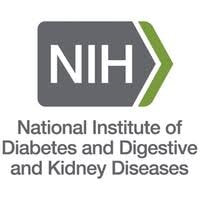Urolithin A nanoparticle therapy for acute kidney injury
CO-PI: Meenakshi Arora, The University of Alabama
The etiology of acute kidney injury (AKI), a common disease, can be multifactorial and currently has no FDA-approved drugs for its prevention or treatment. Emerging evidence from laboratory and clinical studies suggests the pathogenesis involves reactive oxygen species (ROS) generation, activation of inflammatory and apoptotic pathways; therefore, regulating these pathways offer protection. Given the antioxidant, anti-inflammatory and antiapoptotic effects of urolithin A (UA), a gut microbial metabolite of ellagic acid, the aim of this project is to explore the therapeutic potential of UA in AKI. However, UA’s therapeutic potential is constrained by poor bioavailability. The work enabled by previous findings, in which oral delivery of UA was achieved by biodegradable nanoparticles that utilize a surface conjugated ligand targeting the gut-expressed transferrin receptor. Nanoparticle encapsulation of UA led to a ~7 and ~6-fold enhancement in oral bioavailability compared to native UA in healthy rodents and dogs respectively. Treatment with nanoparticle UA also significantly attenuated the histopathological hallmarks of cisplatin-induced AKI and reduced mortality by 63% in the mouse model. This project will further develop UA as a potential therapeutic for treating AKI, considering the fact that cisplatin is utilized only in individuals with cancer who are administered repeated low doses in the clinic.
Publications
- D. Zou, M. Arora, R. Ganugula, M. Kumar, E. M. Scott, D. Shah, M. N. V. Ravi Kumar. Nanoparticles that do not compete with endogenous ligands–molecular characterization in vitro, acute safety in canine, and interspecies pharmacokinetics modeling to humans. J. Control. Release 332, 64-73, 2021
- D. Zou, R. Ganugula, M. Arora, M. B. Nabity, D. Sheikh-Hamad and M. N. V. Ravi Kumar. Oral delivery of nanoparticle urolithin A normalizes cellular stress and improves survival in mouse model of cisplatin-induced. Am J Physiol Renal Physiol 317: F1255-F1264, 2019 (Selected for APS Select award)
- M. Guada, R. Ganugula, M. V. Vadhanam, and M. N. V. Ravi Kumar. Urolithin A mitigates cisplatin- induced nephrotoxicity by inhibiting renal inflammation and apoptosis in an experimental rat model. J Pharmacol Exp Ther 363: 58-65, 2017. (Cover article)


